Jason Tsay
Towards LLMs Robustness to Changes in Prompt Format Styles
Apr 09, 2025Abstract:Large language models (LLMs) have gained popularity in recent years for their utility in various applications. However, they are sensitive to non-semantic changes in prompt formats, where small changes in the prompt format can lead to significant performance fluctuations. In the literature, this problem is commonly referred to as prompt brittleness. Previous research on prompt engineering has focused mainly on developing techniques for identifying the optimal prompt for specific tasks. Some studies have also explored the issue of prompt brittleness and proposed methods to quantify performance variations; however, no simple solution has been found to address this challenge. We propose Mixture of Formats (MOF), a simple and efficient technique for addressing prompt brittleness in LLMs by diversifying the styles used in the prompt few-shot examples. MOF was inspired by computer vision techniques that utilize diverse style datasets to prevent models from associating specific styles with the target variable. Empirical results show that our proposed technique reduces style-induced prompt brittleness in various LLMs while also enhancing overall performance across prompt variations and different datasets.
AI for Low-Code for AI
May 31, 2023

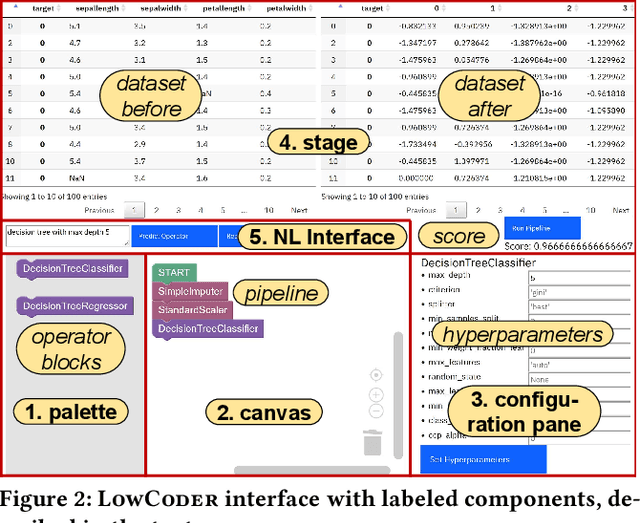
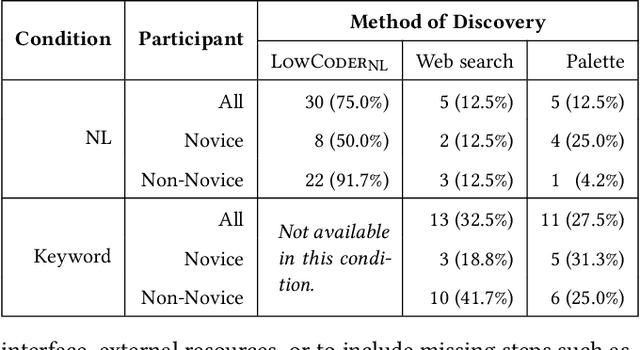
Abstract:Low-code programming allows citizen developers to create programs with minimal coding effort, typically via visual (e.g. drag-and-drop) interfaces. In parallel, recent AI-powered tools such as Copilot and ChatGPT generate programs from natural language instructions. We argue that these modalities are complementary: tools like ChatGPT greatly reduce the need to memorize large APIs but still require their users to read (and modify) programs, whereas visual tools abstract away most or all programming but struggle to provide easy access to large APIs. At their intersection, we propose LowCoder, the first low-code tool for developing AI pipelines that supports both a visual programming interface (LowCoder_VP) and an AI-powered natural language interface (LowCoder_NL). We leverage this tool to provide some of the first insights into whether and how these two modalities help programmers by conducting a user study. We task 20 developers with varying levels of AI expertise with implementing four ML pipelines using LowCoder, replacing the LowCoder_NL component with a simple keyword search in half the tasks. Overall, we find that LowCoder is especially useful for (i) Discoverability: using LowCoder_NL, participants discovered new operators in 75% of the tasks, compared to just 32.5% and 27.5% using web search or scrolling through options respectively in the keyword-search condition, and (ii) Iterative Composition: 82.5% of tasks were successfully completed and many initial pipelines were further successfully improved. Qualitative analysis shows that AI helps users discover how to implement constructs when they know what to do, but still fails to support novices when they lack clarity on what they want to accomplish. Overall, our work highlights the benefits of combining the power of AI with low-code programming.
Enabling Reproducibility and Meta-learning Through a Lifelong Database of Experiments (LDE)
Feb 23, 2022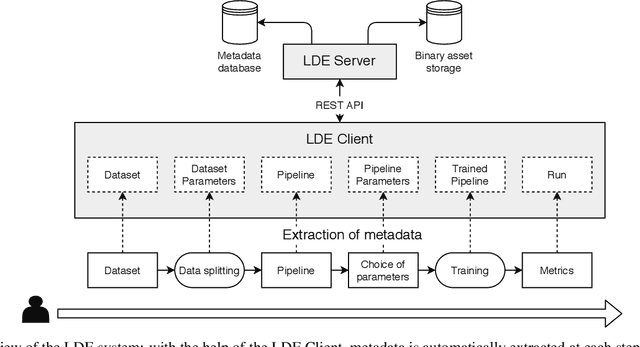
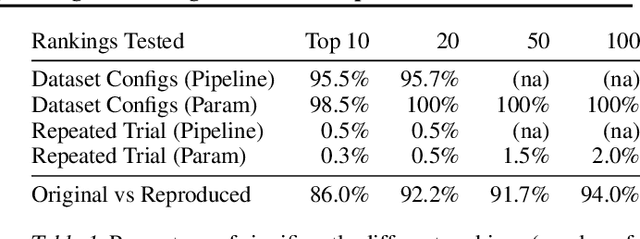
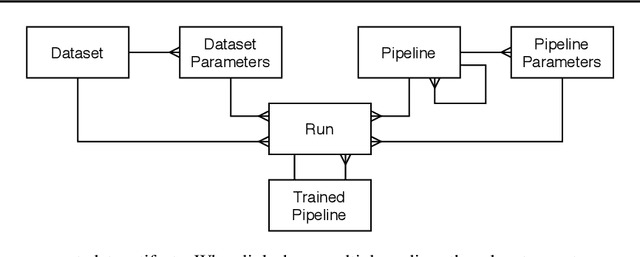
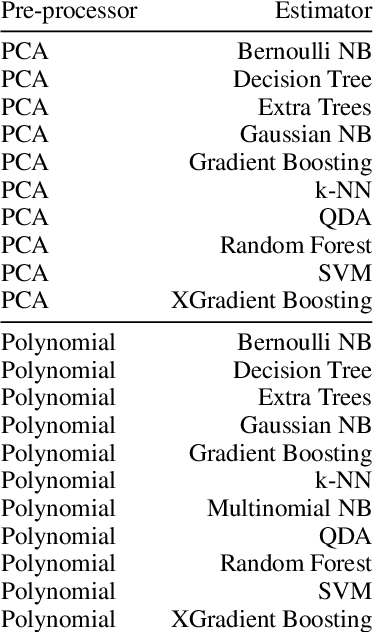
Abstract:Artificial Intelligence (AI) development is inherently iterative and experimental. Over the course of normal development, especially with the advent of automated AI, hundreds or thousands of experiments are generated and are often lost or never examined again. There is a lost opportunity to document these experiments and learn from them at scale, but the complexity of tracking and reproducing these experiments is often prohibitive to data scientists. We present the Lifelong Database of Experiments (LDE) that automatically extracts and stores linked metadata from experiment artifacts and provides features to reproduce these artifacts and perform meta-learning across them. We store context from multiple stages of the AI development lifecycle including datasets, pipelines, how each is configured, and training runs with information about their runtime environment. The standardized nature of the stored metadata allows for querying and aggregation, especially in terms of ranking artifacts by performance metrics. We exhibit the capabilities of the LDE by reproducing an existing meta-learning study and storing the reproduced metadata in our system. Then, we perform two experiments on this metadata: 1) examining the reproducibility and variability of the performance metrics and 2) implementing a number of meta-learning algorithms on top of the data and examining how variability in experimental results impacts recommendation performance. The experimental results suggest significant variation in performance, especially depending on dataset configurations; this variation carries over when meta-learning is built on top of the results, with performance improving when using aggregated results. This suggests that a system that automatically collects and aggregates results such as the LDE not only assists in implementing meta-learning but may also improve its performance.
 Add to Chrome
Add to Chrome Add to Firefox
Add to Firefox Add to Edge
Add to Edge